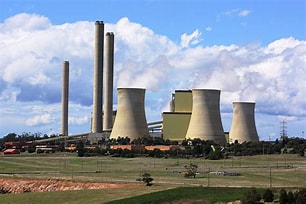Cannon-Brookes reduces investment in AGL
22 Jun 2023 - Performance

Mike Cannon-Brookes’ investment firm Grok Ventures has reduced its stake in AGL (ASX: AGL) but remains the largest investor in one of Australia’s major power generators and its largest carbon emitter.
In a letter to AGL, which the company disclosed to the ASX on 21 June, Grok chief executive and chief investment officer Jeremy Kwong-Law said: “Grok Ventures recently sold a small parcel of shares and entered into a cash-settled equity derivative to hedge a portion of our stake in AGL by less than 1% and increasing our short position by 2%.”
He said Grok continued to view AGL as a high conviction investment but, as a “prudent and disciplined” investment company, it had decided to rebalance its portfolio to enable it to pursue other exciting climate technology and renewable energy investments.
In May, Grok was revealed as the winning bidder in the auction for the Sun Cable venture in which Cannon-Brookes and fellow billionaire Andrew Forrest had previously been jointly the largest investors. The venture was put into voluntary administration after the pair disagreed on its future with Forrest wanting to put at least a temporary hold on plans to lay a 4,200 kilometre undersea cable to supply power to Singapore from a vast solar farm to be developed in the Northern Territory. Forrest wanted to focus on the solar farm first, to provide power to Darwin and to industrial projects including the production of green hydrogen. The full project has been estimated to cost at least $35 billion and possibly much more.
Kwong-Law said Grok continued to view AGL as one of its high conviction investments.
“This small sale of shares should not be seen as a broader divestment plan or change in our focus,” he said. “Even after the sale, AGL remains Grok’s largest holding in its portfolio.
“Grok will allocate further internal resources to increase the depth of our engagement with the company on the issues we believe will deliver value to AGL’s strategy. We look forward to continuing to work constructively with the board and management to tackle the huge mission of decarbonisation and electrification.
“Our expectation of the company remains the same – to deliver clean, cheap and reliable energy to customers.”
He said Grok had been pleased to see a significant change in the strategic director of AGL since it invested in mid-2022, as the company embraced the large economic opportunity to help customers, and the Australian grid, decarbonise and electrify.
In particular, it applauded AGL’s thinking around:
- energy as a service for customers;
- realising the end of gas and coal is inevitable and embracing an electrified future; and
- retaining cash flow to invest in replacement renewables and firming capacity.
“We continue to implore AGL to increase its decarbonisation ambitions. In particular, firm up disclosure dates for Bayswater and Loy Yang A [power stations] which are consistent with a 1.5 degree scenario,” Kwong-Law concluded.
According to the ASX statement, Grok now owns, through the Galipea Partnership, 10.41% of AGL. It sold about 5.85 million shares in April in two tranches, the first at $8.20 a share and the second at $8.28 a share.
Grok acquired almost 11.3% of AGL in May last year. This enabled Cannon-Brookes to successfully wage a campaign against the company’s plan to split itself into two entities, a clean energy business and a dirty energy business holding its legacy coal-fired power assets. The campaign also resulted in board and management changes and an accelerated plan for closing coal-fired power stations.
Shares in AGL have risen significantly over recent months, from around $6.80 in March to close at $11.00 on 21 June.
Image: AGL’s Loy Yang A power station in Victoria’s Latrobe Valley.

